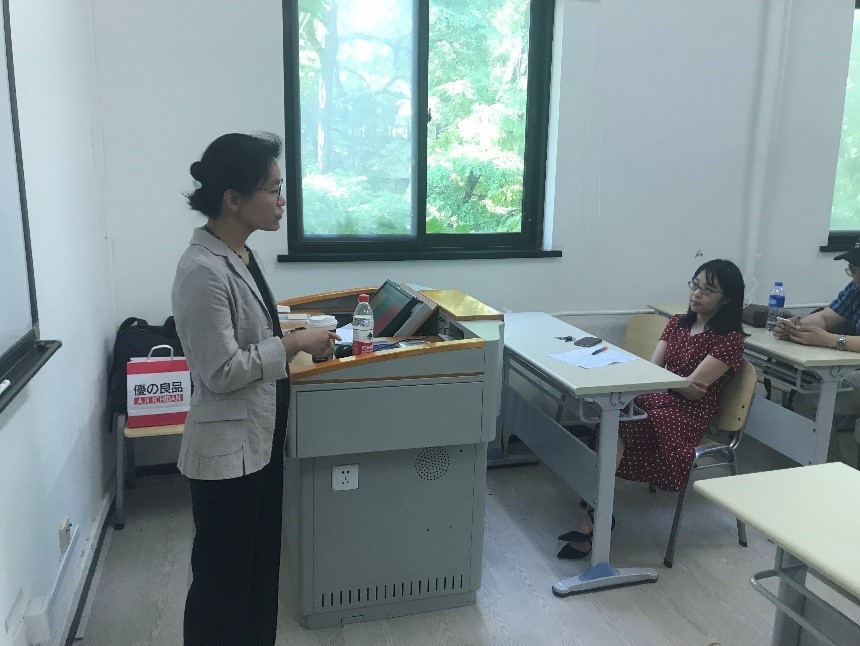The Justice Expression in Jane Austen’s Novels and Movies

Invited by the Center for the Study of World Literature and Culture of the School of Foreign Studies (the SFS), Dr. Qi Yingzhi, Associate Professor of English and American Literature of English Department and Master’s Programme Director of the English Literature and Comparative Literature of Hong Kong Baptist University, gave a lecture titled “the Justice Expression in Jane Austen’s Novels and Movies” at 3 p.m. on May 21, 2019, in Room 302 of the SFS Building for teachers and students. The lecture was hosted by Dr. Fan Yiting, Director of the Department of English, and attended by graduate students, doctoral students and some undergraduate students, who all majored in literature.

At the beginning of the lecture, Prof. Qi took a detailed look at the social and historical events related to Austen’s expressions on justice and violence in the 19th century, such as the French Revolution in 1789, the Napoleonic Wars in 1803, the bankruptcy crisis in 1815, etc. By studying the strong connection between Austen herself and these social events, Prof. Qi argued that Austen gave a high priority to the themes such as justice and violence, class and poverty.
Then, Prof. Qi compared the expressions of justice and violence in Pride and Prejudice, the novel Pride and Prejudice and Zombies (2009), and the adapted film under the same name (2016). She pointed out that in Austen’s novel, justice and violence existed as symbols rather than physical reality. In the story, symbolic violence was manifested in an arrogant attitude of the nobles such as Caroline, Bingley’s sister, and Catherine, Darcy’s aunt, towards the Bennets. Prof. Qi suggested that Austen had an optimistic attitude towards class, justice and violence. For example, although Darcy initially represented class prejudice, he later became a connector between different classes; the final happy ending also showed Austen’s belief that good would ultimately triumph over evil.
Finally, taking the adapted film in 2016 as an example, Prof. Qi pointed out that the author of this novel and the filmmaker consciously zombified the working class (including the workers, the crew members forced into the navy, and the women and children), arguing that zombies were a product of capitalism, and that they were lowly, dirty, constantly persecuted and erased, yet perpetually alive. The open ending of the film also reflected the director’s concern and consideration of the new connotations and expressions of justice and violence in the modern context. In addition, Prof. Qi further analyzed the interesting academic phenomena of post-feminism and oriental elements (such as Chinese Shaolin Kung Fu) that appeared in the film.
During the Q&A session, students raised further questions on some important concepts and terms in the lecture, and finally, Dr. Fan Yiting made a wonderful summary. This lecture greatly broadened students’ academic horizons and students gained a new understanding and perspective of both classic works and current life.
